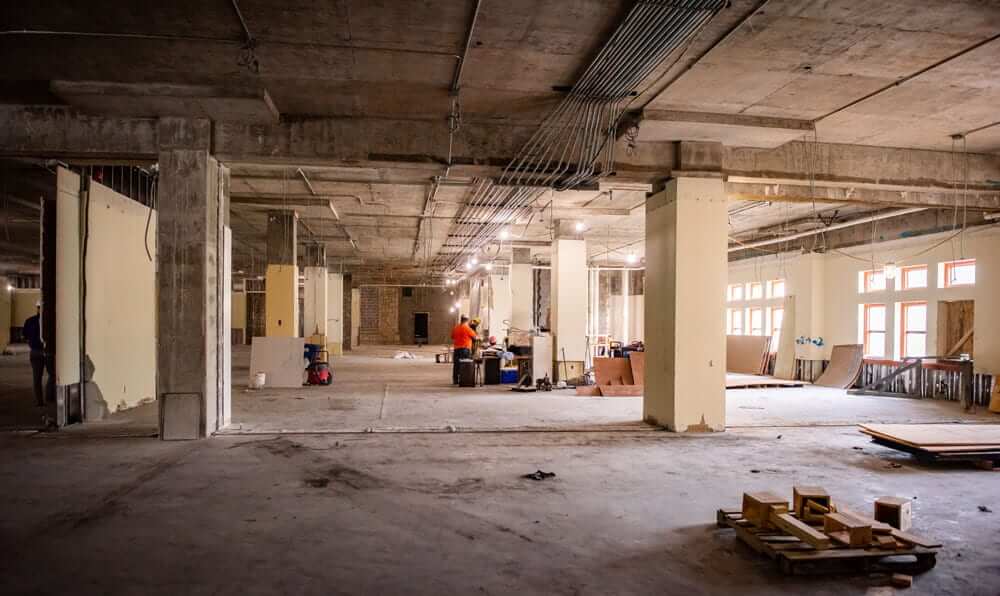When it comes to ensuring that your building is equipped for emergency situations, an Emergency Responder Communication Enhancement System (ERCES) consultant plays a crucial role in assessing whether your building complies with local safety regulations. ERCES systems are essential for enhancing communication during emergencies, particularly in buildings where modern construction materials obstruct radio signals, creating “dead zones” that impede first responders.
A consultant starts by evaluating your building to determine if it meets current ERCES requirements. This involves assessing signal strength, building materials, and overall layout to identify potential communication barriers. In many cases, modern buildings inadvertently block radio signals due to dense materials such as concrete and metal, leading to areas where emergency communication is unreliable or impossible.
The role of an ERCES consultant doesn’t stop at evaluating signal obstruction. Consultants are also responsible for reviewing occupancy needs, including understanding how many people regularly use the building, the specific areas where they congregate, and the risks they may face during an emergency. These assessments help determine the scope of the system and where enhancements are needed.
Additionally, consultants will evaluate local and national code requirements to ensure that your building complies with regulations. Many jurisdictions now mandate that buildings be equipped with ERCES to ensure public safety, particularly in large structures like hospitals, high-rise offices, and parking garages, where emergency responders are most likely to experience communication issues.

If your building does not meet current ERCES standards, an expert consultant will outline the best way to get your property into compliance. This includes identifying the specific technologies and system designs needed to provide optimal signal coverage for emergency personnel. Each solution is custom-tailored to the unique structure and usage patterns of the building.
Some of the steps that consultants take to help your building meet code compliance include:
ERCES consultants are responsible for testing and inspecting the system both before and after installation. The pre-installation phase ensures that all components are compatible with your building’s layout and emergency needs. After installation, rigorous testing is conducted to ensure the system provides the expected level of coverage and clarity throughout all areas of the building. Post-installation testing validates the signal strength and verifies the system meets or exceeds performance expectations.
Regular maintenance is also crucial for long-term compliance and system effectiveness. Consultants offer ongoing inspections and maintenance services, ensuring that your ERCES continues to function optimally as building codes and safety standards evolve.
This continuous oversight helps avoid potential issues before they arise. In many cases, a lack of maintenance can lead to system failures during a crisis, compromising the safety of both building occupants and emergency personnel. Regular maintenance, often performed annually, keeps your ERCES system in top condition, ensuring that it performs effectively when needed most.
Ensuring compliance with ERCES regulations is not only about avoiding penalties but also about protecting lives. In buildings where communication is compromised, emergency responders face significant risks when they are unable to coordinate efforts or call for additional resources. ERCES ensures that clear lines of communication are maintained, allowing for faster response times, better decision-making, and ultimately, a higher chance of saving lives during emergencies.
ERCES also contributes to the safety of first responders themselves. When they have reliable communication tools, they are better equipped to navigate hazardous environments, locate individuals in need of rescue, and respond to evolving situations. This improved communication enhances situational awareness and reduces the likelihood of errors during complex operations.
By engaging an ERCES consultant early in the process, building owners can proactively address any deficiencies in their communication systems before they become major liabilities. This can prevent costly retrofits, delays in building projects, and even potential legal issues.
Navigating the complexities of ERCES regulations can be challenging. Each jurisdiction has its own specific requirements, and staying up-to-date on changes in codes and standards is critical. ERCES consultants are experts in understanding the most current building codes and ensuring that your system complies with all local, state, and federal regulations.
Consultants also play a vital role in communicating with local authorities to ensure your ERCES system meets approval. They handle the necessary paperwork, coordinate inspections with fire marshals or building code enforcement officers, and ensure all documentation is in order.
In many cases, consultants will work directly with building owners and contractors to ensure that ERCES systems are integrated seamlessly with existing fire alarm, security, and communication systems. This integration ensures that all safety systems within the building work together, further enhancing the overall safety of the property.
Ultimately, the role of an ERCES consultant is to guide building owners through the complex process of ensuring emergency communication systems are compliant, effective, and tailored to their specific needs. From the initial assessment and system design to installation, testing, and maintenance, consultants provide invaluable expertise in making sure that your building is fully equipped for any emergency situation.
If you’re unsure whether your building is in compliance or if you need assistance designing and installing an ERCES system, working with an experienced consultant is the best way to ensure that you’re meeting all requirements while protecting the lives of those who work or reside in your building. A well-implemented ERCES system provides peace of mind, knowing that in the event of an emergency, communication between first responders will remain clear and uninterrupted.
When you’re ready to explore ERCES solutions for your building, Elves Co. provides comprehensive consulting services, from initial assessments to ongoing system maintenance. Our experienced team is dedicated to ensuring that your building meets all code requirements while enhancing safety and communication for first responders. Contact us today to learn more about how we can help you create a safer environment for everyone in your building.